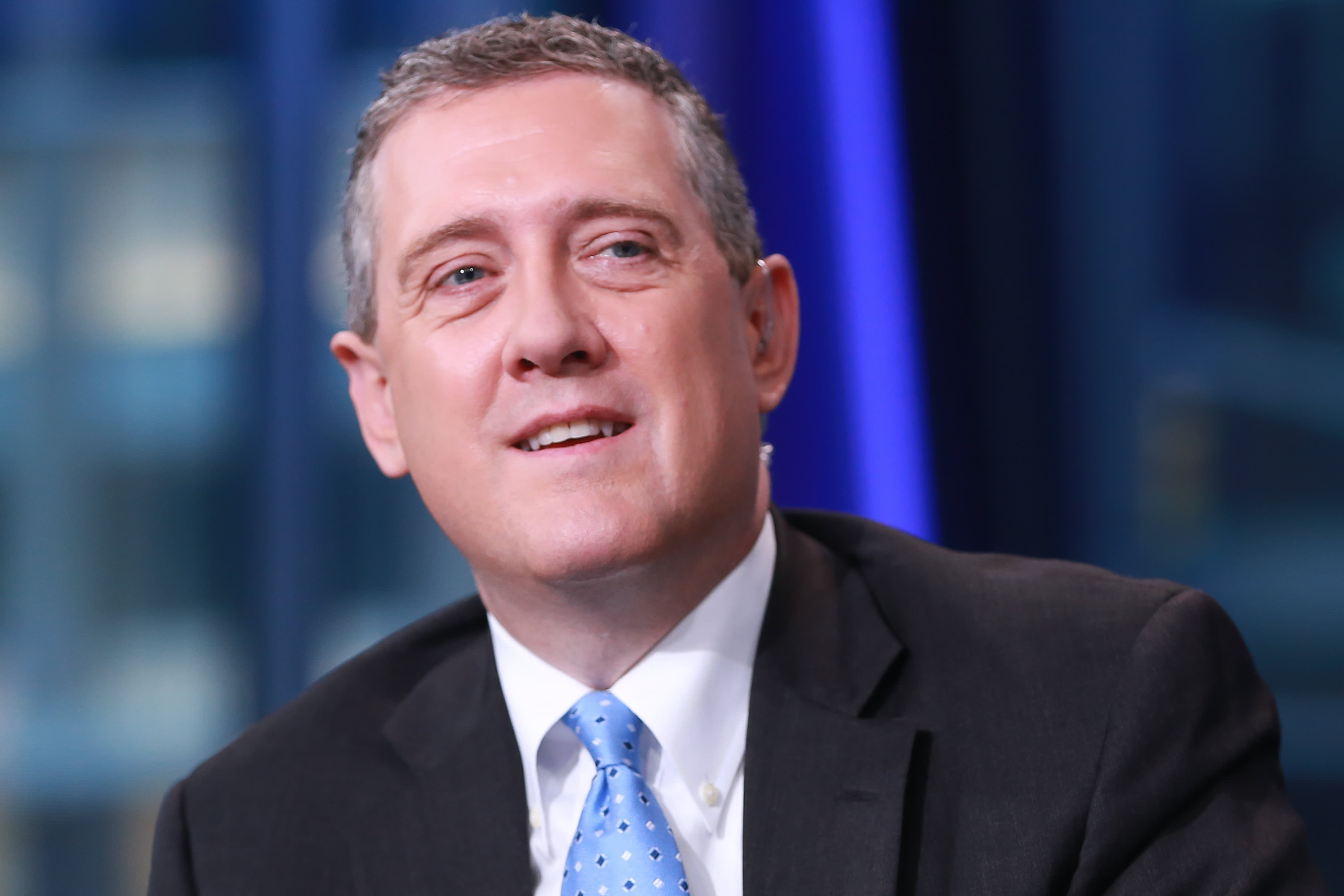
St. Louis Federal Reserve President James Bullard said Friday the central bank should continue to ease monetary policy because of the recession signal being flashed by the bond market.
"The yield curve is inverted here. We've got one of the higher rates on the yield curve here. That's not a good place to be," Bullard told CNBC's Steve Liesman during an interview in Jackson Hole, Wyoming.
The so-called yield-curve inversion refers to the 10-year Treasury yield trading below its 2-year counterpart. This briefly happened this week and last week. Experts fear a yield-curve inversion because it has historically preceded a recession.
These moves in the bond market come as economic growth across the globe is slowing down while China and the U.S. remain engaged in a trade war. There is concern that slower global growth and the trade war could drag down the U.S. economy.
The Fed already cut rates in July by 25 basis points, citing "global developments" and "muted inflation." Bullard said further cuts would help lift inflation in the U.S. and mitigate the impact of a global economic slowdown.
"The question is: Looking forward, how much risk are we facing from the fact that you've got a global manufacturing contraction going on and possibly more to come? So there is some downside risk, and I think you'd like to take out insurance against that downside risk, " Bullard said. He added that the Fed could always "take back" an insurance rate cut.
His comments come hours before a speech at the Fed symposium in Wyoming from Fed Chairman Jerome Powell. Bullard is a voting member of the Federal Open Market Committee this year.
Subscribe to CNBC on YouTube.
Reaed More
Post a Comment